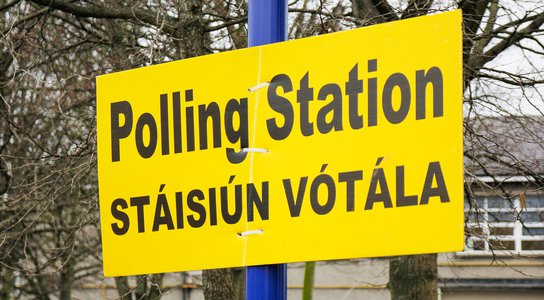Many of us will have seen adverts from political campaigns on social media, sharing videos of their leaders making speeches, talking to voters, or posting graphics of their key commitments. Some ask you to sign up to volunteer, others to join their email lists. Most ask you to share the content with your friends or family. What might be less familiar to everyone is the fact that you are often seeing very specific adverts that have been targeted to you based on your age, gender, where you live, your political beliefs and your behaviour online.
Whilst on the surface this may seem pretty innocuous - businesses segment their audience all the time to sell more products, why shouldn’t politicians? - the reality can be quite a lot darker. Micro-targeting political campaign messages at a specific group of people can embed division and discord, with political campaigns able to pit different segments of the population against each other. For example, showing adverts suggesting free higher education is a waste of tax payer money just to older voters, or targeting those in higher income brackets with content suggesting those on the lowest incomes shouldn’t have access to additional welfare programs. There are also concerns that political campaigns could target supporters of an opposing party with messages intended to suppress their vote or spread disinformation about the voting process or election integrity.
2020 US election
In 2016, commentators and some senior advisors credited President Trump’s extensive and targeted Facebook campaign as a decisive factor in his election victory. It’s not just the Trump campaign - political campaigns across the world, and from every ideological base, have used targeted ads to get their key messages across. With this in mind, we worked with YouGov ahead of the US election to poll voters in three key battleground states (Ohio, Wisconsin and Pennsylvania) who regularly use social media.
This is what we found:
Nearly 7 in 10 (68%) think online advertisers should ensure political ads are viewable by everyone. Just 15% think these ads should be targeted and only made available to certain groups. The data suggests the majority of 2016 voters (70% Clinton voters and 66% Trump voters) would support a ban on targeted online political ads.
Around 1 in 2 (54%) people have seen ads on their social media feeds questioning the validity of the US election in the last month or longer, and of this, 19% say they could ‘rarely’ or ‘never’ identify who was funding those ads.
Elsewhere, the data showed:
- 50% saw targeted online ads as hindering US democracy.
- 61% of respondents thought social media companies should do more to provide information on how online advertising has been targeted, and 68% believed political ads should be viewable by anyone, rather than targeted at specific groups;
- 31% said they would like to reduce the time they spend on social media. Of those, a majority (52%) cited false information as one the reasons for cutting down;
There were particular concerns about targeting based on:
- Race (71% felt this should not be allowed);
- Who you voted for at the last election (75% felt this should not be allowed);
- Income (83% felt this should not be allowed);
- Sexuality (80% felt this should not be allowed);
- And general online behaviour such as browsing history, previous purchases, etc. (82% felt this should not be allowed).
What now?
At Global Witness, we believe there’s far too little regulation over how social media platforms operate – and nowhere is this more true than in the case of political ads, where legislation to govern how political campaigns engage with voters has simply not kept pace with new technology. The current situation cannot continue. It is undermining democracy, embedding division, and has the potential to disenfranchise swathes of the population. It is time for governments to step in, regulate Big Tech and, as a starting point, ban the use of micro-targeting for political advertising.
You can read our press release HERE.
You can read more about our campaign against digital threats to democracy HERE.
Cover photo by Ty Wright/Getty Images


